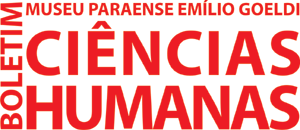Abstract
Objects have long been made from the fibers of the tucumã palm in communities of the Arapiuns River in Santarém, Pará, and in 2022 this know-how was declared historical, cultural and intangible heritage of the municipality. This article addresses changes in social organization and artisanal production of braided crafts in Arapiuns from the experience of an association of crafters in the communities of Nova Pedreira, Vista Alegre, and Coroca (AARTA). Semi-structured interviews, informal conversations, and analysis of documents indicated that several institutions began to operate in the region in the 2000s in order to generate income and promote cultural and environmental preservation. These institutions, together with the artisans, enabled exchange of know-how, variations in types and dyeing of pieces, formalized organization of the artisans, as well as changes in the ways these crafts were produced and sold. The formal organization of the group, its activities, and the role played by a specific artisan consolidated these changes. During this process, AARTA encouraged the artisans to value their own crafts and drove placement of these products in spaces that add value to traditional crafts and provide better sales prices, along with dissemination and recognition of this municipal heritage.
Keywords
Community association; Immaterial heritage; Artisanal production; Santarém; Tucumã

 Thumbnail
Thumbnail
 Thumbnail
Thumbnail
 Thumbnail
Thumbnail
 Mapa: Ana Carolina Vitorio Arantes (2023).
Mapa: Ana Carolina Vitorio Arantes (2023).
 Fonte: Moreira (2005), acervo CNFCP/IPHAN.
Fonte: Moreira (2005), acervo CNFCP/IPHAN.
 Foto: Ana Carolina Vitorio
Foto: Ana Carolina Vitorio